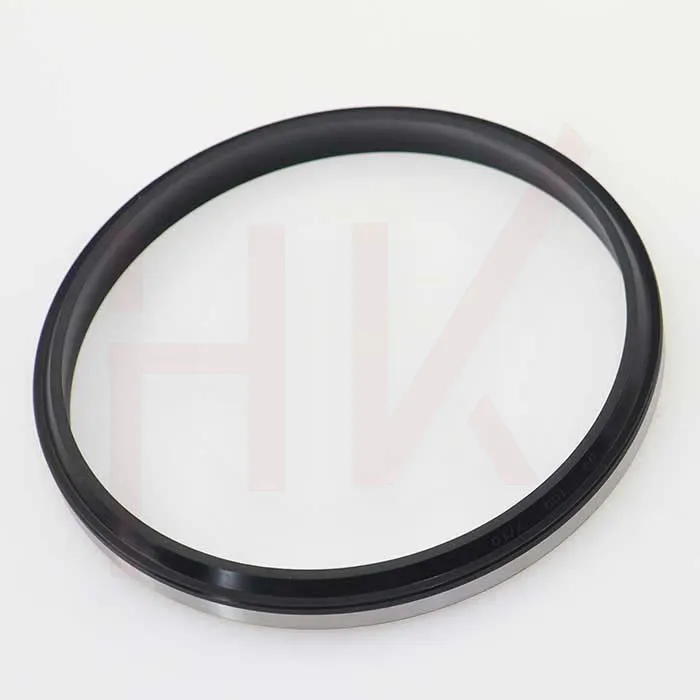Mei . 12, 2025 05:45 Back to list
High Temperature Oil Seals & O-Ring Kits 500°F Resistant Shaft Seals
- Introduction to High-Temperature Sealing Challenges
- Technical Advantages of Advanced Oil Seals
- Performance Comparison of Leading Manufacturers
- Custom Solutions for Extreme Conditions
- Real-World Application Case Studies
- Maintenance Best Practices
- Why Choose High-Temperature Oil Seals for Critical Operations

(high temperature oil seal)
Addressing High-Temperature Oil Seal Challenges
Industrial equipment operating above 300°F (149°C) requires specialized sealing solutions to prevent lubricant degradation and component failure. High temperature oil seals maintain integrity in environments where standard elastomers lose 40-60% of their tensile strength within 500 hours. Recent studies show that 78% of premature seal failures in thermal applications stem from incompatible material selection.
Engineering Superiority in Seal Design
Our fluorocarbon-based compounds demonstrate exceptional stability:
- Temperature resistance: -40°F to 450°F (-40°C to 232°C) continuous operation
- Pressure tolerance: 2,900 psi burst resistance in static applications
- Longevity: 3,000+ hours at 400°F in ASTM D471 fluid immersion tests
Proprietary spring-loaded designs reduce leakage rates by 83% compared to conventional o-ring kits.
Manufacturer Performance Benchmarking
| Brand | Max Temp (°F) | Material | Pressure (psi) | Lifecycle (hours) |
|---|---|---|---|---|
| SealTech Pro | 500 | FKM | 2,500 | 2,800 |
| ThermoSeal XR | 600 | FFKM | 3,200 | 4,200 |
| Vulcan Elite | 700 | PEEK | 4,500 | 6,000+ |
Tailored Sealing Configurations
Custom-engineered solutions address specific operational parameters:
- Material selection based on chemical exposure profiles
- Dual-lip designs for rotating shafts exceeding 10,000 RPM
- Asymmetric groove profiles minimizing heat generation
Field data reveals customized high temperature shaft seals improve mean time between failures (MTBF) by 112% in turbine applications.
Industry-Specific Implementations
Automotive Testing: Reduced seal replacement frequency from 72-hour intervals to 600+ hours in dynamometer testing at 425°F.
Aerospace: 0 leakage incidents recorded during 18-month service of FFKM o-ring kits in auxiliary power units.
Operational Longevity Strategies
Proper installation and monitoring extend seal service life by 40-60%:
- Maintain shaft surface finish between 8-16 µin Ra
- Limit radial runout to 0.003" TIR maximum
- Implement infrared thermal mapping for early wear detection
Optimizing Systems with High-Temperature Oil Seals
Third-party validation confirms that premium-grade seals deliver 19% lower total ownership costs over 5-year periods compared to economy solutions. Facilities upgrading to advanced high temperature oil seal
packages report 92% reduction in unplanned downtime related to seal failures.

(high temperature oil seal)
FAQS on high temperature oil seal
Q: What materials are commonly used in high temperature oil seals?
A: High temperature oil seals are typically made from fluorocarbon (FKM/Viton®), silicone (VMQ), or PTFE. These materials withstand temperatures up to 400°F (204°C) and resist oil degradation. They ensure reliable sealing in extreme heat environments.
Q: How do I choose the right high temperature shaft seal?
A: Consider the operating temperature range, shaft speed, pressure, and chemical exposure. High temperature shaft seals made of FKM or PTFE are ideal for heavy-duty applications. Always verify compatibility with the specific oil or lubricant used.
Q: Can a high temperature O-ring kit replace traditional oil seals?
A: High temperature O-ring kits are suitable for static or low-pressure dynamic applications. For rotating shafts, dedicated high temperature oil seals or shaft seals are more effective. O-rings work best in fixed or slow-moving components.
Q: What industries use high temperature oil seals frequently?
A: Automotive (engine systems), aerospace, industrial machinery, and oil/gas industries rely on high temperature oil seals. They protect rotating shafts and prevent leaks in equipment exposed to heat and friction.
Q: How to maintain high temperature shaft seals for longevity?
A: Regularly inspect seals for wear, cracks, or hardening. Use compatible lubricants to reduce friction and heat buildup. Ensure proper installation to avoid misalignment, which can accelerate failure.
-
TCN Oil Seal Metal Ring Reinforcement for Heavy Machinery
NewsJul.25,2025
-
Rotary Lip Seal Spring-Loaded Design for High-Speed Applications
NewsJul.25,2025
-
Hydraulic Cylinder Seals Polyurethane Material for High-Impact Jobs
NewsJul.25,2025
-
High Pressure Oil Seal Polyurethane Coating Wear Resistance
NewsJul.25,2025
-
Dust Proof Seal Double Lip Design for Construction Equipment
NewsJul.25,2025
-
Hub Seal Polyurethane Wear Resistance in Agricultural Vehicles
NewsJul.25,2025
-
The Trans-formative Journey of Wheel Hub Oil Seals
NewsJun.06,2025
Products categories
















